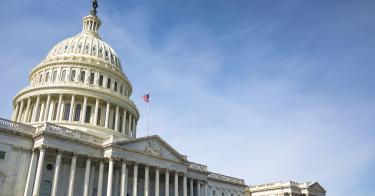Forget about our near-trillion-dollar annual budget deficits and our $20 trillion in national debt — pork is about to be back on the table in Washington.
We’re talking about the old-fashioned practice of stuffing special-interest pork barrel projects into federal spending bills. The practice is known as earmarking, and for decades it was the “currency of corruption” in Congress. Each year, hundreds of these projects — from teapot museums, to potato research, to studies on the mating habits of crabs — were inserted into spending bills, adding billions and even tens of billions to the taxpayer tab.
The process became such an epidemic that in 2005 there were 15,000 of these projects. In 2015, Republicans finally banned the process. Now, Congress is debating whether to resurrect these oinkers, and our Capitol Hill sources tell us that both parties want to grease the skids with bacon fat to get this done. It’s the fiscal equivalent of bringing back the swine flu.
Has Congress forgotten the cascade of earmark-related scandals that led to federal investigations or convictions? In 2002, former House Speaker Dennis Hastert bought up Illinois farmland for $15,000 per acre. Two years later, he inserted a $207 million earmark into the federal highway bill to construct roads near his new land. Four months after the bill was signed, Hastert's trust sold the land, and the speaker reaped millions.
At a recent hearing on whether to bring back earmarks, Rep. Don Young, R-Alaska, even defended the infamous $200-million “bridge to nowhere” in Alaska — which would have served an island with a few hundred residents. He says the federal dollars belonged to Alaska and that “it should have been built. There’s never been a bridge anywhere that had anything on the other side until it was built.” Yes — build it, and they will come.
Proponents of earmarks defend these projects as financially inconsequential given that we have a government that spends $5 trillion every year. Only in Washington would millions of dollars of waste be considered peanuts. But former Sen. Tom Coburn, R-Okla., who played a major role in the pork barrel ban, put it best when he called earmarks “the gateway drug to runaway spending bills.”
A Harvard study found direct linkage between earmarks and increased federal spending. Politicians are more likely to vote for a big spending bill if they've got an individual stake in the legislation.
If a project has real value, the state and local taxpayers will fund it. Do we really want Congress to vote on a rail station in Fargo, N.D., when most of the members have never even been there?
The truth is, even with the ban on earmarks, clever members of Congress find ways to abuse the appropriations process and sneak local projects into bills. The forthcoming “OpenTheBooks Oversight Report: Where's the Pork?” details hundreds of millions of dollars in waste and insider trading. Consider just three examples:
- $1.5 million for the California Prostitutes Education Project — This project describes itself as a “youth-centered initiative” that “works with street prostitutes” to teach “safer sex and needle use” in a way that’s respectful of their clients’ “lifestyles and choices." Prostitution is illegal in California.
- $2.5 million for “Space Racers: An Animated Children's Cartoon” — This grant from NASA to the Alabama Space Science Exhibit Commission supports an animated children’s cartoon in which the main characters embark on several space adventures. Isn't this why we have the Cartoon Network?
- $568,000 to use soap operas to reduce HIV in urban black women — Northeastern University received a grant from the Department of Health and Human Services to try and reduce urban black women’s risk of HIV by streaming soap operas to their mobile devices. This wouldn’t be quite so hard to swallow if we didn’t already have a government that borrows some $2 billion a day.
It’s ironic that members of Congress want to bring back earmarks so they can serve bacon to their districts and get re-elected. Instead, earmarking is the surest way for Republicans to infuriate conservative voters and get thrown out of office in 2018.
This piece originally appeared in the Chicago Tribune



